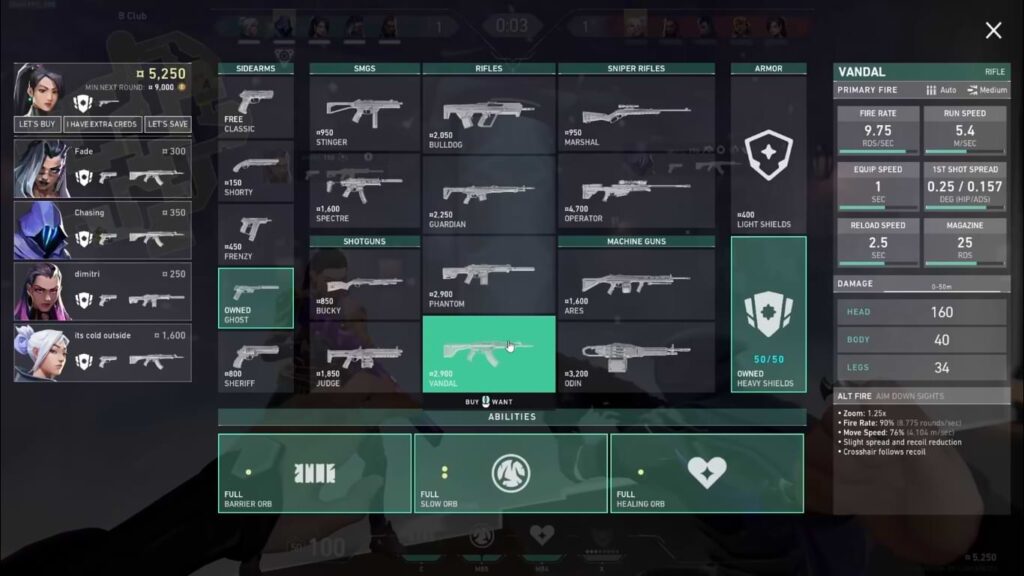Dasiwang: Your Gateway to Trending Insights
Stay updated with the latest news, trends, and insights across various topics.
Force Buy or Bust: The Risky Roulette of CS2 Rounds
Dive into the high-stakes world of CS2 rounds! Discover if Force Buy strategies are your ticket to victory or a recipe for disaster.
Understanding the Force Buy: Strategies for CS2 Rounds
In the fast-paced world of Counter-Strike 2 (CS2), understanding the concept of a Force Buy is crucial for team success, especially during critical rounds. A Force Buy refers to purchasing weapons and equipment despite insufficient funds, with the aim of maximizing potential damage to the enemy or winning an unexpected round. Players often resort to this strategy when they believe a full save would lead to a disadvantageous situation, especially if they need to break the opposing team’s economy. Proper timing and communication are vital, and teams should assess their opponents’ current financial status to decide whether a Force Buy is warranted.
There are several effective strategies to implement during a Force Buy in CS2. Here are some key tactics to consider:
- Weapon Selection: Opt for high-impact weapons like shotguns or SMGs that can yield significant results if used properly.
- Coordinated Push: Plan a unified attack on a specific bombsite to increase the chances of overwhelming the enemy.
- Utilize Utility: Even with limited funds, using grenades effectively can help create openings or disrupt enemy positions.
By adopting these strategies, teams can enhance their winning chances during a Force Buy round, turning the tide in their favor.

Counter-Strike is a popular tactical first-person shooter that emphasizes team play and strategy. Players can enhance their gameplay by monitoring performance metrics, such as frame rates and latency, using tools like the cs2 net graph. The game's competitive scene has created a vibrant community and numerous esports tournaments worldwide.
Is Force Buying Worth the Risk in CS2 Competitive Play?
In the fast-paced world of CS2 competitive play, the decision to force buy can often lead to heated discussions among players. A force buy is a strategy where players spend all their savings on weapons and equipment, even when it's not financially optimal. This tactic can be a double-edged sword; on one hand, it can catch the enemy off-guard and potentially turn the tide of the game, but on the other, it leaves your team economically vulnerable if the gamble fails. Players must weigh the potential rewards against the risks of falling behind in subsequent rounds.
Moreover, the impact of a force buy extends beyond just one round. Successful execution can build momentum and morale within the team, while failure can lead to frustration and loss of strategy. Consider the following factors before opting for a force buy:
- Team Communication: Ensure your team is on the same page regarding the strategy.
- Current Economy: Analyze both your segment and the enemy’s economic situation.
- Map Control: Assess whether your team can effectively gain map control even with limited resources.
The Psychology of Decision-Making in CS2 Force Buys
The psychology behind decision-making in CS2 force buys plays a critical role in a player's performance and overall game strategy. During a match, players are often faced with high-pressure situations where the outcome can hinge on their financial resources and their understanding of risk vs. reward. In these scenarios, the mental framework of players influences their choices significantly. For instance, players may evaluate their team's economy, the opponents' strength, and the likelihood of success before deciding to either invest heavily in a force buy or save for a better buy in the next round. This decision-making process is intricate, involving cognitive biases that can lead to both rational and irrational choices that may impact the match's outcome.
In CS2, team dynamics also play a pivotal role in shaping decision-making during force buys. Communication and shared understanding among team members can enhance their ability to make collective decisions that align with their game plan. Factors such as previous rounds' performance, individual player morale, and overall team strategy can heavily influence whether a force buy is deemed appropriate. Additionally, players often succumb to cognitive dissonance when they find themselves debating the merits of a risky force buy versus a conservative approach. Ultimately, the psychology of decision-making in force buys encapsulates the blend of individual thought processes and team coordination, which is essential to navigating the complexities of competitive gameplay.